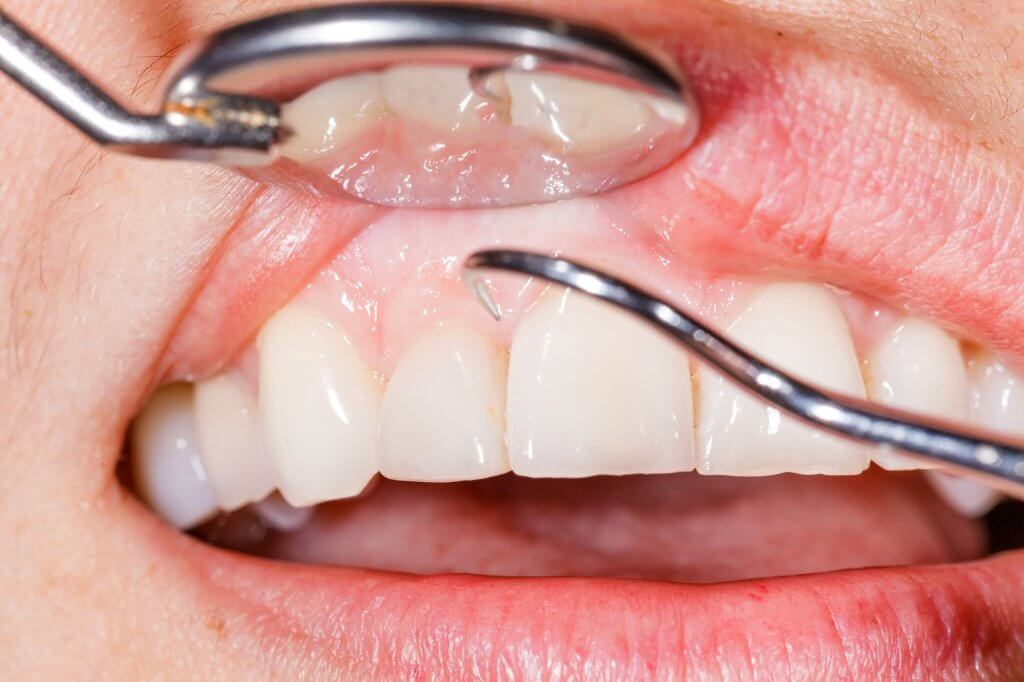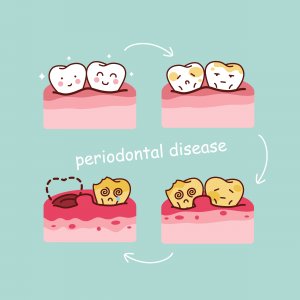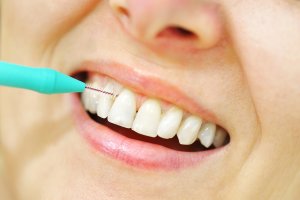If you've ever had a disease affect your gums and teeth, then you have probably heard of a periodontist. But what is a periodontist? Are all dentists periodontists? How can I find a dental specialist in my area? And why would I need to find a periodontist near me?
In this article, we will help you find a local periodontist and answer all the other questions that come about after you find your specialist.
Keep reading, or call 866-383-0748 right now if you simply want to be connected with a local gum specialist who is available to treat you. You'll be connected with a live operator who will put you through to a gum specialist in your area.
In This Article
What is a periodontist?
A periodontist is a dentist who specializes in the inflammatory disease that destroys your gums and other structures that support your teeth. These dentists focus on the prevention, diagnosis, and treatment of dental disease and the placement of dental implants.
They go through intense training in these three areas and are usually experts in cutting edge technologies for new treatments. In fact, these dentists go through an extra three years of education after dental school. In addition to the treatment of disease and placement of implants, they are also trained in cosmetic dental procedures.
Dr. Genie Diaz explains what a periodontist is in this video:
Are all dentists periodontists?
Not all dentists are periodontists. As mentioned before, periodontics requires an additional three years of education after dental school. You can think of periodontists as a specialist in gums. They have all the knowledge and skills of a general dental practitioner plus the expertise to treat periodontal disease and perform cosmetic dental procedures. Periodontists can treat anything from mild gingivitis to severe periodontal disease.
Periodontists also treat infected root surfaces through a process called root planing and offer scaling, removal of damaged tissues (root surface debridement), and the reversal of lost tissue and bone. They can also perform surgical procedures focusing on implants and gum health (like laser gum surgery) rather than oral and maxillofacial procedures.
Here is a video explaining the difference between a periodontist and a regular dentist:
Why might I need to find a periodontist near me?
You may need to find a periodontist near you if your dentist refers you to one or if you are experiencing any of the following symptoms:

- Bleeding while brushing your teeth or eating – Unexplained bleeding while eating and brushing point to a deeper problem. This is one of the most common symptoms of a periodontal infection.
- Halitosis (bad breath) – Bad breath that persists with an intensive oral hygiene routine can indicate periodontitis, gingivitis, and infection in the gum tissue.
- Receding gums and loose teeth – If your teeth are looking longer, it can be a sign of gum recession and bone loss from periodontal disease. As the disease progresses it moves from your gums to your jawbone and your teeth may become loose or completely fall out.
- Other health conditions – Some other non-dental diseases correlate with periodontal infections. Heart disease, diabetes, osteopenia, and other disorders are a few. Bacterial infection can spread to other parts of your body through the bloodstream.
If you or your general dentist suspect you are experiencing periodontal disease, it is imperative that you find a periodontist near you as soon as possible to prevent further damage to your gums and possible spreading of the infection to other parts of your mouth and body.
How to diagnose gum disease
You may be thinking, after I find a gum specialist near me, how will that specialist diagnose my gum disease? We have compiled a list of the techniques that periodontists use when diagnosing this type of infection below:

- A thorough review of your dental and medical history that may be contributing to your symptoms.
- An examination of your teeth, gums, tongue, and mouth to find signs of plaque and inflammation, indicating infection.
- Inserting a dental probe next to your tooth beneath your gum line at several sites in your mouth in order to measure the pocket depth of the groove between your gums and teeth. Usually, in a healthy mouth, that depth measures between 1-3 millimeters. A pocket deeper than 4 millimeters may be an indicator of gum disease.
- X-rays of your jawbone to check for bone loss in the areas where your periodontist sees deeper pockets.
- Additional medical tests to determine what has caused the infection. If the cause is unclear from the initial examination, your doctor will order further testing to determine if an underlying condition is causing the disease.
A periodontal specialist in your area can determine what has caused your disease. Then the periodontal doctor can prescribe or perform the necessary treatments to get your mouth back in a healthy state.
How does periodontal disease affect my health?

Periodontal disease is the result of poor brushing and flossing habits that allow a sticky film of bacteria, called plaque, to build up on the teeth. In more advanced cases, the symptoms are uncomfortable and noticeable. Things such as bleeding gums, pain when chewing, and tooth loss are the result of periodontal disease.
If left untreated, periodontal disease can lead to more substantial health issues and make one more susceptible to more serious conditions. A variety of serious conditions, including cancer of the kidney, pancreas, and blood, can result from untreated periodontal disease. The bacteria from your gums and teeth can travel through your bloodstream to other parts of your body and negatively affect your entire system.
If you suspect that you have periodontal disease and require treatment from a periodontist then don't wait. Call your dentist or local health services department today to schedule an appointment.
Treatments offered by a periodontist
A periodontist is a dentist who specializes in the diagnosis, treatment, and prevention of periodontal disease as well as restorative dentistry procedures. Not only will they be able to diagnose disease, but they will also be able to prescribe antibiotics and various procedures to eliminate infection and remedy any lasting damage. These treatments can include root canals, gum grafting, teeth scaling, jawbone grafting, and dental implants. Many periodontists also have training in laser dentistry techniques.
Root canal
A root canal is a process of drilling into the tooth to remove decay from inside the roots of the tooth. This procedure will clean bacteria out of the root system and prevent infection from spreading to other parts of the body through the bloodstream. You may also be referred to an endodontist for this procedure.
A root removal procedure is usually necessary if you have untreated tooth decay, faulty crowns or fillings, a broken tooth, have had repeated dental work on the tooth, or there is physical trauma. Once the root system has been treated, the tooth will be filled in to preserve the rest of the tooth. These teeth are more fragile than healthy teeth, so your periodontist may recommend a crown to prevent damage.
If there is no longer enough remaining root or tooth to support the structure, then you may require a complete tooth/root extraction. This usually is the result of a prolonged infection that has spread through the root system of the tooth and left too much damage to repair with a root canal treatment.
Gum grafting
Gum grafting is a surgical option that can prevent bone loss and gum recession from progressing. It can also help to protect roots that have been exposed to infection from decay. There are three types of gum graft surgery: connective tissue graft, free gingival graft, and pedicle (lateral) graft. Your periodontist will choose which type you will have depending on your individual needs.
Teeth scaling
Teeth scaling is a common cleaning procedure. Most dentists use this treatment in routine visits in order to help prevent gum disease and tooth decay. Teeth scaling removes tartar buildup and helps to keep your teeth and gums healthy. You can think of this procedure as a deep cleaning that your ordinary dental hygiene routine cannot match up to.
Jawbone grafts
If your periodontal disease has progressed into the area of restorative dentistry, then you may require a jawbone graft. This procedure involves the transfer of a small piece of bone from one area of the body to another to create a solid base for dental implants. Your jaw can lose some of its density due to prolonged infection and decay, rendering it unfit to be the base of dental implants to replace your natural teeth.
Dental implants
A dental implant is a post-surgical inserted into the jawbone to hold a dental crown that replaces your natural tooth. Essentially, it is a prosthetic tooth complete with a “root” (the post). You may need dental implants if your periodontist observes that the root system and structure of your tooth are past the point of recovery and recommends tooth removal.
More likely though, you'll see a prosthodontist for dental implants — Read more about finding a prosthodontist near you.
How much does it cost to visit a periodontist?
Now for the big question: how do I find an affordable periodontist near me? To answer this question we must first look at how much a periodontist normally costs. Depending on what treatment is required and how advanced your gum disease is, the cost will fluctuate. If you only require cleaning and a course of antibiotics, the cost will be much less than if your tooth roots require planning or removal and a dental implant procedure. Below is a table of different treatments and their approximate prices:
Treatment | Cost | Purpose |
Dental implants | $1,500 - $6,000 per tooth | Replace missing teeth |
Teeth scaling | $75 - $200 | Cleaning surfaces |
Root planing | $700 - $1,000 per tooth | Cleaning infected root surfaces |
Root surface debridement | $150 - $300 | Removal of damaged tissue |
Gum tissue graft | $1,600 - $2,000 | Replacement of gums |
Bone grafting | $250 - $3,000 | Replacement of lost bone |
Affordable periodontist near me
If you need to find a periodontist immediately, it's just a case of doing a quick internet search with your zip code. Most periodontists will build time into their schedule that will allow them to see patients on short notice if urgent treatment is needed, such as an emergency abscess treatment for unbearable tooth pain. If you find yourself in need of a periodontist, you can call and ask your local dentist's office for a referral to a local gum specialist.
You can also check with your local health departments about affordable or and discounted dental services near you. CMS (1-800-MEDICARE) can provide detailed information about the local government programs in your area including Medicare, Medicaid, and CHIP (Children's Health Insurance Program).
Another option is to contact local dental schools to see if they have a periodontist clinic available at discounted rates. You may also contact the United Way to find out if discounted dental programs are available in your community.
If your condition doesn't require immediate treatment (dental implants, cosmetic procedures), then you may want to consider dental tourism to relieve yourself of some of the burdensome costs of dental care in the United States.
Taking care of your gums at home
Avoiding periodontal disease is fairly simple, provided that no underlying health conditions are the cause of the disease. Keeping your mouth clean and maintaining the health of your teeth and gums requires daily maintenance. Some steps you can take to prevent and potentially reverse periodontal disease at home include:

- Brush your teeth often—at least twice a day or after every meal and snack.
- Use a soft toothbrush and replace it often, at least every 3-4 months.
- Consider using an electric toothbrush because it is more effective at removing plaque and tartar.
- Floss after brushing. Consider using a water flosser, as it is more effective at removing debris from between teeth, permanent retainers, and dental bridges/implants. Read about some of the best water flossers on the market.
- Supplement brushing and flossing with an interdental cleaner.
- Don't smoke or chew tobacco.
Keeping your gums and teeth in a healthy state may require a bit more effort than you may be used to when it comes to dental hygiene routines. But the impact it will have on your wallet and overall health is well worth the extra five minutes it will take to ensure mouth bacteria is kept at bay.
How to avoid periodontal disease
In addition to all the at-home care mentioned above, you can visit your dentist regularly to get routine cleanings, check-ups, and occasionally deep cleaning. Periodontal disease can be reversed if caught in the early stages so it is very important to keep tabs on your gum health and regularly have your dentist investigate the health of your gums and teeth.
Finding a periodontist near you
If your regular dentist has recommended you receive specialist treatment, they should also be able to refer you to a periodontist near you. You can search online for recommended gum specialists nearby.
Or, if you need help now, you can also call 866-383-0748 24/7 and speak with a live operator who will match you with a nearby periodontist according to your needs.
Conclusion
Periodontists offer specialized dental care. If you have gingivitis or any other type of periodontal disease, then a visit to your local periodontist will be necessary to treat the disease. Keeping your mouth healthy is an important part of a healthy life. You can minimize your risk of gum disease by scheduling routine cleanings, check-ups, and taking care of your mouth health at home.
There are services available all across the country to help ease the burden of dental costs, making finding an affordable periodontist in your area completely feasible. If you suspect you need a periodontist, call your dentist today because the longer you wait to treat gum disease, the worse it can become and therefore more expensive and cumbersome to treat.
If you still have questions but you can't get in to see a dentist, you may want to consider teledentistry. Learn more about online dental appointments in our full guide.
FAQ
How can I find a periodontist near me?
Finding a periodontist in your area is as simple as asking your dentist, or any other local dentist, for a referral. You can also do an internet search with your zip code or call 866-383-0748. You'll be connected with a dentist in your area who can help you find a local periodontist.
What is a periodontist?
A periodontist is a dentist who specializes in the inflammatory disease that destroys your gums and other teeth structures. These dentists focus on the prevention, diagnosis, and treatment of gum disease.
How much does a periodontist cost?
Depending on what treatment is required and how advanced your gum disease is, the cost will fluctuate. Cleaning and antibiotics cost much less than planning, removal, or implants.
American Dental Association: Periodontics. Consulted 5 August, 2020.
Mayo Clinic: Gingivitis. Consulted 5 August, 2020.
NIH: Periodontal (Gum) Disease. Consulted 5 August, 2020.




